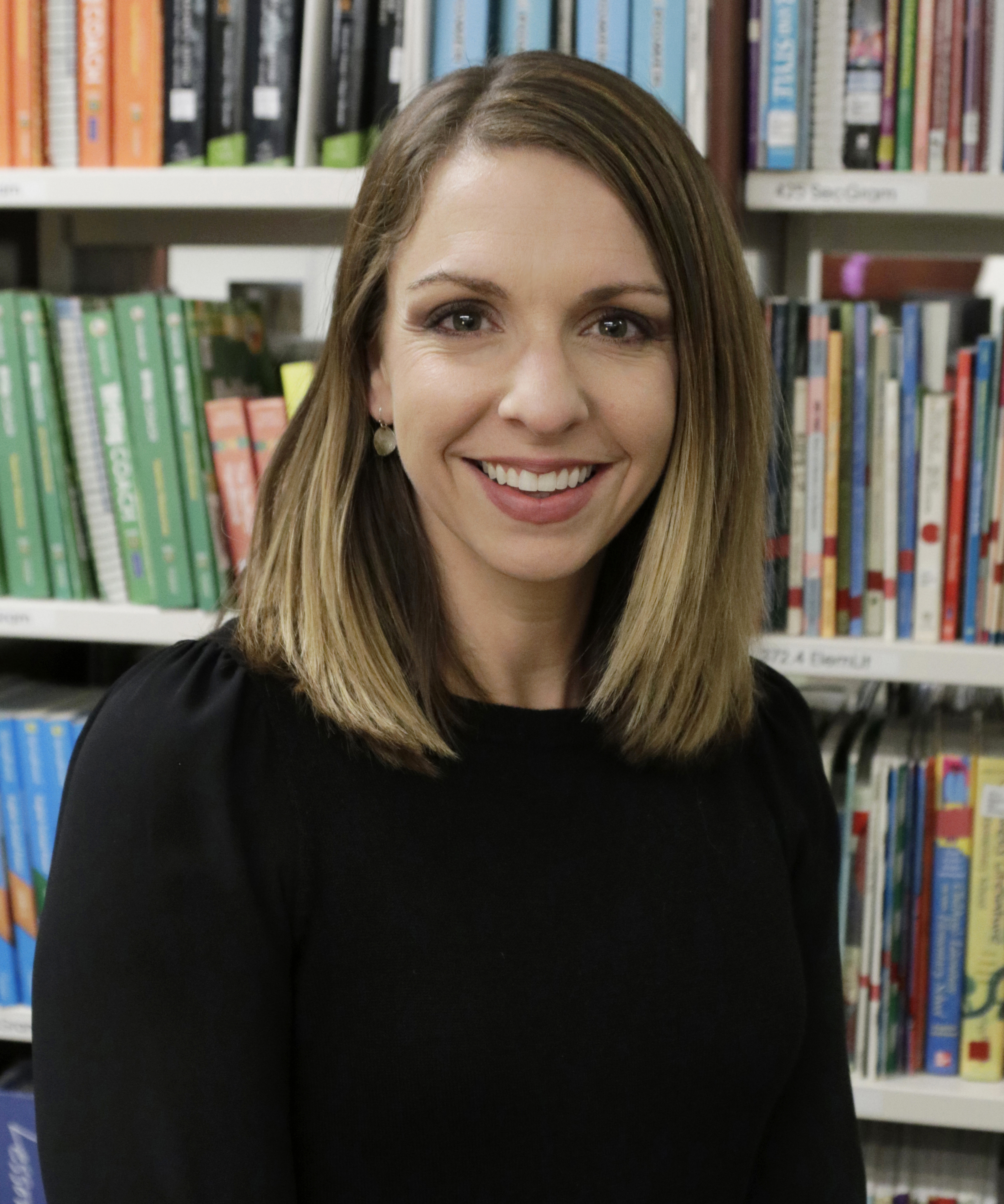Baylor Expert: Literacy Studies Takes Reading Beyond the Printed Page

Kelly C. Johnston, Ed.D., assistant professor of literacy in the Baylor School of Education, researches the everyday ways people make meaning and communicate.
Kelly C. Johnston, Ed.D., assistant professor of literacy in the Baylor School of Education, researches the everyday ways people make meaning and communicate
Media Contact: Kelly Craine, Baylor University Media and Public Relations, 254-297-9065
Follow us on Twitter: @BaylorUMedia
WACO, Texas (March 1, 2023) – Often when people hear the word literacy, they think about learning to read, but literacy involves much more than reading from the printed page. Literacy encompasses the everyday ways people use language to make meaning and communicate, said Kelly C. Johnston, B.S. ’04, Ed.D., assistant professor in the Baylor University School of Education, whose research focuses on how children and youth engage with literacy across diverse contexts and the implications for literacy development and well-being.
“It includes reading, writing, speaking and listening. Those are the fundamental things that we do with language to make meaning and communicate,” Johnston said.
She describes her approach as multimodal, such as how text, images, sounds and movement interrelate to produce knowledge that can be learned, and how to enhance that experience for children in a way that values who they are and where they are in the learning process. Her research also focuses on the practice of integrating literacy into other subjects like social studies and physical education.
“We are always using literacy whether we realize it or not. It’s just focusing on how we are intentional about it and not limiting it to only decoding print from a page,” Johnston said.
Intentional literacy activities
Johnston’s current research project – which involves doctoral student Camille Talbert, master’s student and fourth-grade teacher Cole Sussman, and fellow professor Karon LeCompte, Ph.D., – integrates English language arts and reading instruction with social studies standards in a local fourth-grade class through reading, writing and multimodal literacy practices.
This research supports children’s sustained engagement and comprehension by using specific instructional methods, such as annotating texts and artifacts, collaborative conversations and identifying new information through student-led research. For example, to learn more about the indigenous nations of Texas, the students investigated multiple genres such as informational, poetry, narrative and legends through formats like text, video, drawings, pottery and art.
Students created multimodal teaching posters on a topic related to their research questions. The posters included writing and drawings on Native American art, Native American music and dance and various tribes’ ways of life.
“We have found that these types of intentional literacy activities help student engagement and success across all subjects,” Johnston said. “This research to integrate literacy across the school day and beyond the traditional “reading and writing block” provides a pathway for teachers to teach literacy without having to sacrifice other subjects. The use of multiple texts and modes also provides more inclusivity and helps children at all learning levels to improve literacy.”
Innovation in teaching and learning
Johnston’s current research project was recognized recently by the Baylor Department of Curriculum and Instruction with the inaugural Innovation in Teaching and Learning Award granted on behalf of the Education Deans of Independent Colleges and University of Texas (EDICUT). The EDICUT award provides a platform for teacher educators to develop innovative teaching and learning research, resources and activities in the field of education. It not only recognizes Johnston’s merging of research to inform undergraduate teaching, but also supports her research with and mentoring of current doctoral and master’s students.
“This award supports ongoing efforts to merge research and practice. Particularly for Baylor and our emphasis on transformational education, I will use support from this award to enhance the research my team and I do alongside children and teachers, which will immediately inform my teaching of pre-service teachers in our undergraduate program,” Johnston said.
ABOUT KELLY C. JOHNSTON, ED.D.
Kelly C. Johnston, Ed.D., is an assistant professor of literacy in the Baylor University School of Education. Her program of research examines how children and youth engage with literacy across contexts and the implications for literacy development and well-being in underserved communities. Her research seeks to produce more equitable and just opportunities for children and youth whose cultural, linguistic, racial-ethnic and neurodiverse identities and practices have been marginalized through formal education. To learn more about Dr. Johnston’s scholarship and leadership in literacy education, visit www.kellycjohnston.com.
She teaches undergraduate and graduate courses in the Department of Curriculum and Instruction. Before coming to Baylor, Johnston taught graduate courses at Teachers College, Columbia University, and at The City College of New York while working as a research fellow in the Department of Curriculum and Teaching at Teachers College, Columbia University.
ABOUT BAYLOR UNIVERSITY
Baylor University is a private Christian University and a nationally ranked Research 1 institution. The University provides a vibrant campus community for more than 20,000 students by blending interdisciplinary research with an international reputation for educational excellence and a faculty commitment to teaching and scholarship. Chartered in 1845 by the Republic of Texas through the efforts of Baptist pioneers, Baylor is the oldest continually operating University in Texas. Located in Waco, Baylor welcomes students from all 50 states and more than 100 countries to study a broad range of degrees among its 12 nationally recognized academic divisions.
ABOUT BAYLOR SCHOOL OF EDUCATION
For more than 100 years, the School of Education has advanced Baylor’s mission across the globe while preparing students for a range of careers focused on education, leadership, and human development. With more than 60 full-time faculty members, the school’s growing research portfolio complements its long-standing commitment to excellence in teaching and student mentoring. Baylor’s undergraduate program in teacher education has earned national distinction for innovative partnerships with local schools that provide future teachers deep clinical preparation. Likewise, the School of Education’s graduate programs have attained national recognition for their exemplary preparation of research scholars, educational leaders, innovators, and clinicians. Visit www.baylor.edu/SOE to learn more.